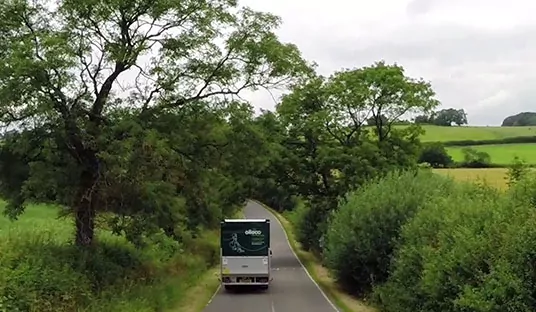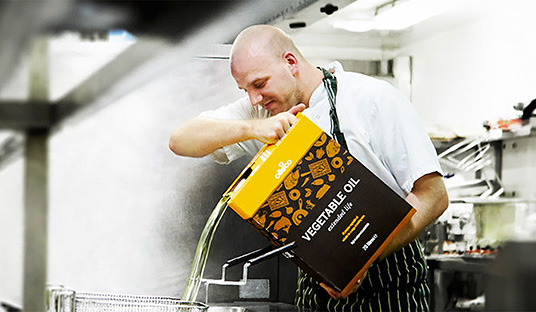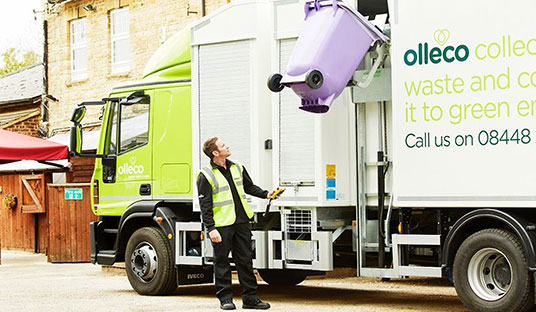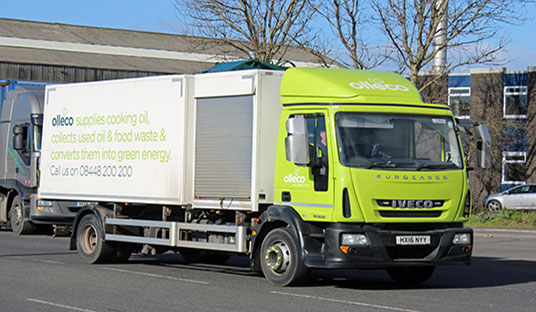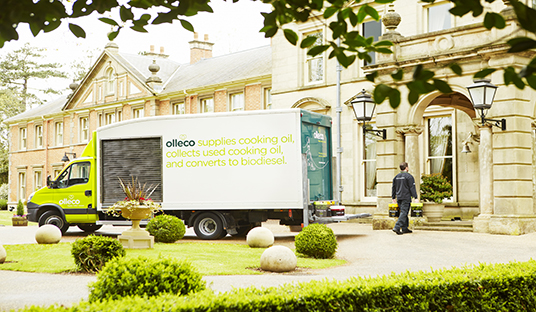Conceived in 2006 by ABP, Olleco was originally created to address changes in legislation which banned used cooking oil from its traditional use as an ingredient in animal feed. To avoid this precious, energy-rich material from going to landfill where it contributes to global warming or being disposed of to sewer where it forms fatbergs, Olleco set out to collect as much used cooking oil as possible to be converted into high value, renewable fuels such as biodiesel.
To reduce the carbon footprint of our used cooking oil collections, the natural next step was to use the outward leg of our collection journeys to deliver fresh cooking oils and fats. We sourced a range of premium cooking oils and fats from sustainable sources to meet the demands of our growing customer base and procured a fleet of bespoke vehicles. Deploying “reverse logistics” in this way was a beautifully simple tactic to reduce the carbon impact of the cooking oil supply chain by 50%.
This business model, coupled with a highly professional national service, quickly propelled Olleco to market leadership and won us the business of many of the largest names in the food industry. Not content with that, we looked at other areas where the food industry could improve its carbon footprint and avoid wasting valuable resources. Food waste was often being sent to landfill where it produces methane – a greenhouse gas around 25 times more damaging than CO₂. However, by processing it through an anaerobic digestor, the methane can be safely captured and used to make renewable energy. Seeing this opportunity, Olleco added food waste collections to the services it offers its customers. Segregating food waste is the single most important factor in reducing the carbon footprint of any food service business.
For many years, Olleco customers have asked for a one-stop solution to all their waste streams. A service that operated to the same high standards as their used cooking oil and food waste collection services. We are now applying that powerful environmental commitment to a Total Resource Management service which will encompass all your recyclable and residual waste streams giving a holistic view of the environmental impact of your business. As always, we will deploy the most innovative and effective circular economy techniques to deliver the best environmental and financial outcomes for your commercial waste collections.
88% less Greenhouse Gas emissions
That’s the greenhouse gas savings Olleco has made, compared to fossil fuels
If Olleco processed all the UK’s commercial food waste
we could capture as much carbon annually as a forest the size of Scotland
Employing over 1000 people
at more than 19 sites, strategically located throughout the UK and Ireland, we service over 50,000 catering establishments.
The world’s leading climate scientists
have warned that, unless we can limit global warming to 1.5°c over the next twelve years, we face a catastrophic chain of extreme weather events that will threaten the lives of millions of people.
The Ellen MacArthur Foundation
have identified $3 trillion of value to be realised globally by businesses rethinking the way they operate
-
88% less Greenhouse Gas emissions
That’s the greenhouse gas savings Olleco has made, compared to fossil fuels
-
If Olleco processed all the UK’s commercial food waste
we could capture as much carbon annually as a forest the size of Scotland
-
Employing over 1000 people
at more than 19 sites, strategically located throughout the UK and Ireland, we service over 50,000 catering establishments.
-
The world’s leading climate scientists
have warned that, unless we can limit global warming to 1.5°c over the next twelve years, we face a catastrophic chain of extreme weather events that will threaten the lives of millions of people.
-
The Ellen MacArthur Foundation
have identified $3 trillion of value to be realised globally by businesses rethinking the way they operate

